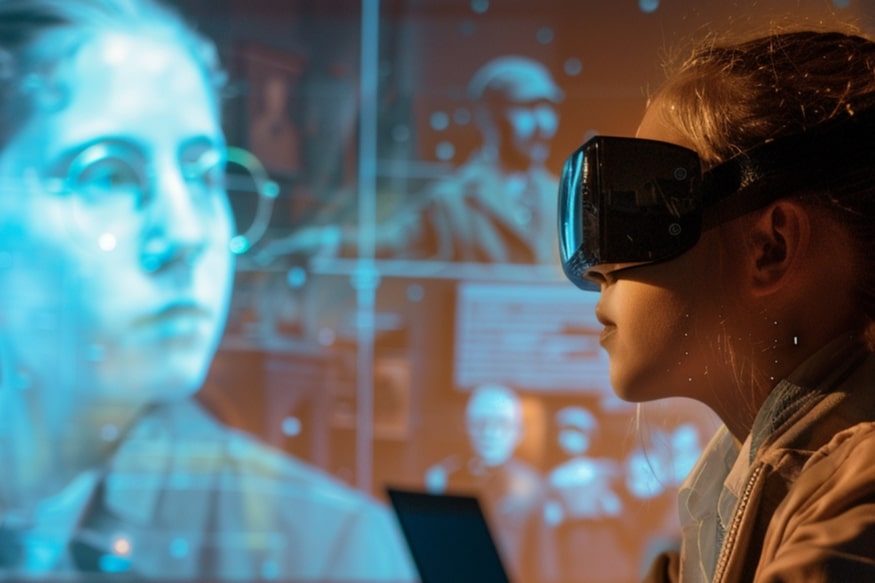
This is an AI-generated image created with Midjourney by Molly-Anna MaQuirl
With the rise of antisemitism and the global decline in the number of Holocaust survivors, the need for urgent and proactive measures to combat the spike in prejudice and anti-Jewish attitudes has never been more pressing. This challenging trend underscores the critical importance of innovative programs that foster a better understanding of historical events and combat online misinformation.
In response to the threat of false information and conspiracy theories on social media, Karen Pollock, the chief executive of the Holocaust Educational Trust, has introduced a groundbreaking AI-powered program.
The innovative technology, which creates virtual representations of holocaust survivors, is a powerful and inspiring tool in the fight against misinformation, including antisemitic narratives. It revolutionizes Holocaust education and preserves the truth of personal stories, historical realities and survivors' experiences, connecting future generations to the human aspect of the Holocaust.
By interpreting a pupil’s questions and playing the recorded answers of survivors, artificial intelligence programs allow pupils to have simulated conversations with holocaust survivors using a virtual reality (VR) headset. This immersive experience allows them to explore pre-war homes and settings, fostering understanding, tolerance and empathy.
The role of AI in preserving testimonies and providing immersive education is significant and profoundly reassuring. It ensures that the stories, history and experiences of the past will be preserved for future generations.
Efforts and educational initiatives aimed at providing information about the Holocaust and combatting antisemitism are critical in addressing prejudice in the present day. Programs such as this are also responsible for ensuring that AI is utilized ethically and safely.
Collaboratively, AI technology and educational programs have the potential to significantly reduce racial prejudice and cultivate a more enlightened and tolerant society in the future, giving us hope for a better tomorrow.

This is an AI-generated image created with Midjourney by Molly-Anna MaQuirl
With the rise of antisemitism and the global decline in the number of Holocaust survivors, the need for urgent and proactive measures to combat the spike in prejudice and anti-Jewish attitudes has never been more pressing. This challenging trend underscores the critical importance of innovative programs that foster a better understanding of historical events and combat online misinformation.
In response to the threat of false information and conspiracy theories on social media, Karen Pollock, the chief executive of the Holocaust Educational Trust, has introduced a groundbreaking AI-powered program.
The innovative technology, which creates virtual representations of holocaust survivors, is a powerful and inspiring tool in the fight against misinformation, including antisemitic narratives. It revolutionizes Holocaust education and preserves the truth of personal stories, historical realities and survivors' experiences, connecting future generations to the human aspect of the Holocaust.
By interpreting a pupil’s questions and playing the recorded answers of survivors, artificial intelligence programs allow pupils to have simulated conversations with holocaust survivors using a virtual reality (VR) headset. This immersive experience allows them to explore pre-war homes and settings, fostering understanding, tolerance and empathy.
The role of AI in preserving testimonies and providing immersive education is significant and profoundly reassuring. It ensures that the stories, history and experiences of the past will be preserved for future generations.
Efforts and educational initiatives aimed at providing information about the Holocaust and combatting antisemitism are critical in addressing prejudice in the present day. Programs such as this are also responsible for ensuring that AI is utilized ethically and safely.
Collaboratively, AI technology and educational programs have the potential to significantly reduce racial prejudice and cultivate a more enlightened and tolerant society in the future, giving us hope for a better tomorrow.